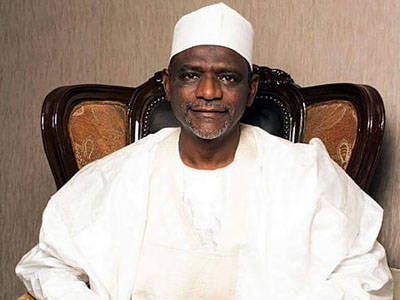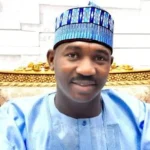In 2007, the Federal Government launched a new curriculum known as the New Basic Education Curriculum for primary and junior secondary schools. The existing curriculum was aimed at correcting the abnormalities of the former one, which was believed to be lacking in the areas of human capacity development; eradication of poverty; and the country’s quest for total emancipation as an independent entity. Under the new system, the structure was divided into three levels of lower, middle and upper basic education curriculum. The lower level was for primary one to three, the middle level was for primary four to six, while the upper level was for Junior Secondary School, JSS one to three.
The new curriculum was effective from the 2009/2010 academic session. In its bid to correct the said abnormality in the past curriculum, History subject was relegated to the background. The subject no longer stood alone as an independent subject as it was before. The reasons given for the decision, then was that students were shunning the subject and that the decision was necessitated by the fact that there were few jobs for History graduates, and there was dearth of teachers of the subject.
The decision was met with criticism with many describing the reasons as mere excuses. Following the criticisms, in 2016, the former minister of Education, Adamu Adamu, ordered the reintroduction of the subject in basic schools across the country. The minister called for the disarticulation of Social Studies in the curriculum of basic schools and reintroduction of History as a subject. The minister had stated that the reintroduction of History as a subject on its own in basic schools will give the Nigerian child a self-identity of who they really were.
He had added that Nigeria owes both the present and future generations the responsibility of removing all inhibitions against opportunities of acquiring morals and ethics as taught in the religious traditions. But more than three years after the pronunciation, the subject was left at the background where it had been thrown.
The Federal Ministry of Education then developed another plan on Education for Change: A Ministerial Strategic Plan (2016-2019), which contains several initiatives and activities to be executed, including the disarticulation of Social Studies and the reintroduction of the teaching of History in primary and secondary schools. The plan document was approved by the National Council of Education (NCE) at its 61st Ministerial Session of September 27 – 30, 2016. Following this, the National Education Research and Development Council (NERDC), the agency that has the mandate to develop curriculum, especially at this level, was directed to start the process of disarticulating History from Social Studies. Ever since then no such course was introduce, while the study of history had also been jettisoned by the schools across the country.
Recalled, that on Tuesday, March 27, 2018, it seems that the wishes of many Nigerians will be fulfilled as the Minister of education that time, ordered the reintroduction of History as an independent subject into the basic and junior secondary schools in the country. The Minister, who gave the directive, at the launch of History curriculum and teacher’s guide in Abuja, said such would allow students know the history of the country, added that the importance of History to nation building, national identity, patriotism and overall human development could not be overemphasized. He had also stated that one of the cardinal principles of the present administration was social and behavioural change, and History was key to its realization.
The Minister added that following this development, the Nigerian Educational Research and Development Council (NERDC) was directed to carry out the disarticulation of history from social studies curriculum. The new History curriculum, according to the Minister then, was designed to expose students to a body of knowledge that would enable them appreciate history as an instrument of national integration and nation building in the 21st century and beyond. Many stakeholders have met the news of the reintroduction of History as an independent subject in the curriculum of primary and junior secondary schools in the country with great joy.
Now, the recent discovery in the school curriculum across the Primary and Secondary Schools in Nigeria had showed that almost all our schools in the country have abandoned and not reintroduced the study of history after the directive from the former Minister of Education, Adamu Adamu. Scholars and experts who know the importance of the study of history in the nation building have decried the current neglect and warned against nonchalant attitude of Federal Government and relevant stakeholders in denying Nigerian children the opportunity of understanding their past, present and the future.
The adverse effect of this development on the behavour of younger generation in the country cannot be overemphasized. There is therefore the need for National Council on Education (NEC) to re-assess its decision and chart a new course at rejuvenating the neglected study of history by ensuring that the subject is re-introduced in the national curricular and ensure that more attention is placed at exposing the pupils to core aspect of their indigenous history and culture.
The rejuvenation of history in all the schools in the country will not as a matter of fact interfere with or affect the existence of other subjects like; social study, civic education, geography and government as they all have their relevance in promoting academic excellence. But more importantly it is very pathetic today that many of Nigerian pupils are oblivious of history of their dear fatherland, as some stakeholders have deliberately deleted it from the national curricular and far away from consciousness of the younger generation.
The attendant effect of the deliberate action of detesting history as subject of study has given free passage to incursion of Europeans, American and Asian history and culture which further bastardize our vision as a nation. The behavioral pattern of Nigerian children in schools will tilt towards embracing all manner of untoward behaviours of foreign ways of life which have dealt a blow on their psyche. Recently it was discovered that Nigeria children more than a decade ago have been suffering from trauma of what could be tagged as “psychological misdemeanor” from the doze of foreign contaminated culture they have consumed. These misdemeanors which range from lack of respect for elders, cultism, poor and improper way of dressing, violent character, gangsterism among others are prevalent in the society.
No nation or people can preserve its history and culture without deliberate plan of government by first restructuring the school curriculums to align with the new era of embracing African history. Government can also seek inputs from scholar and involve all stakeholders in reviving the study of history across schools in the country.
Orunbon, a public affairs analyst, wrote from Abeokuta, Ogun state.

 Join Daily Trust WhatsApp Community For Quick Access To News and Happenings Around You.
Join Daily Trust WhatsApp Community For Quick Access To News and Happenings Around You.

